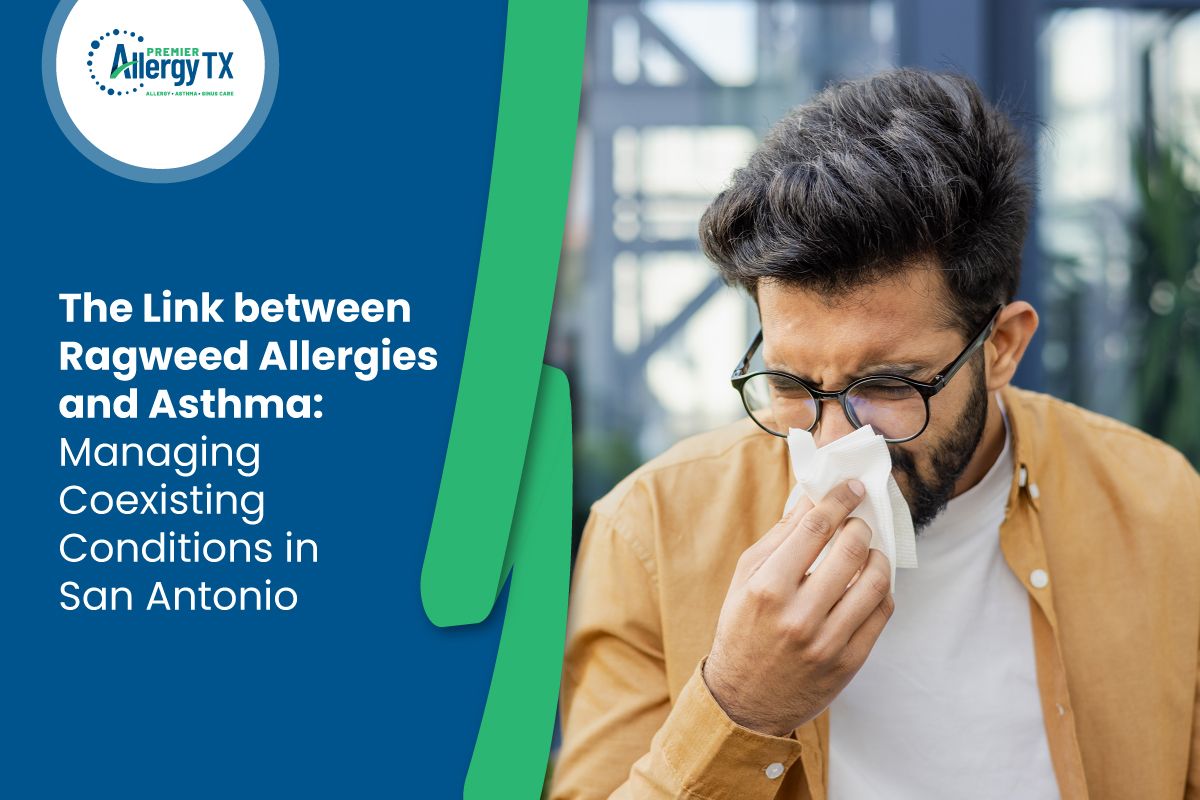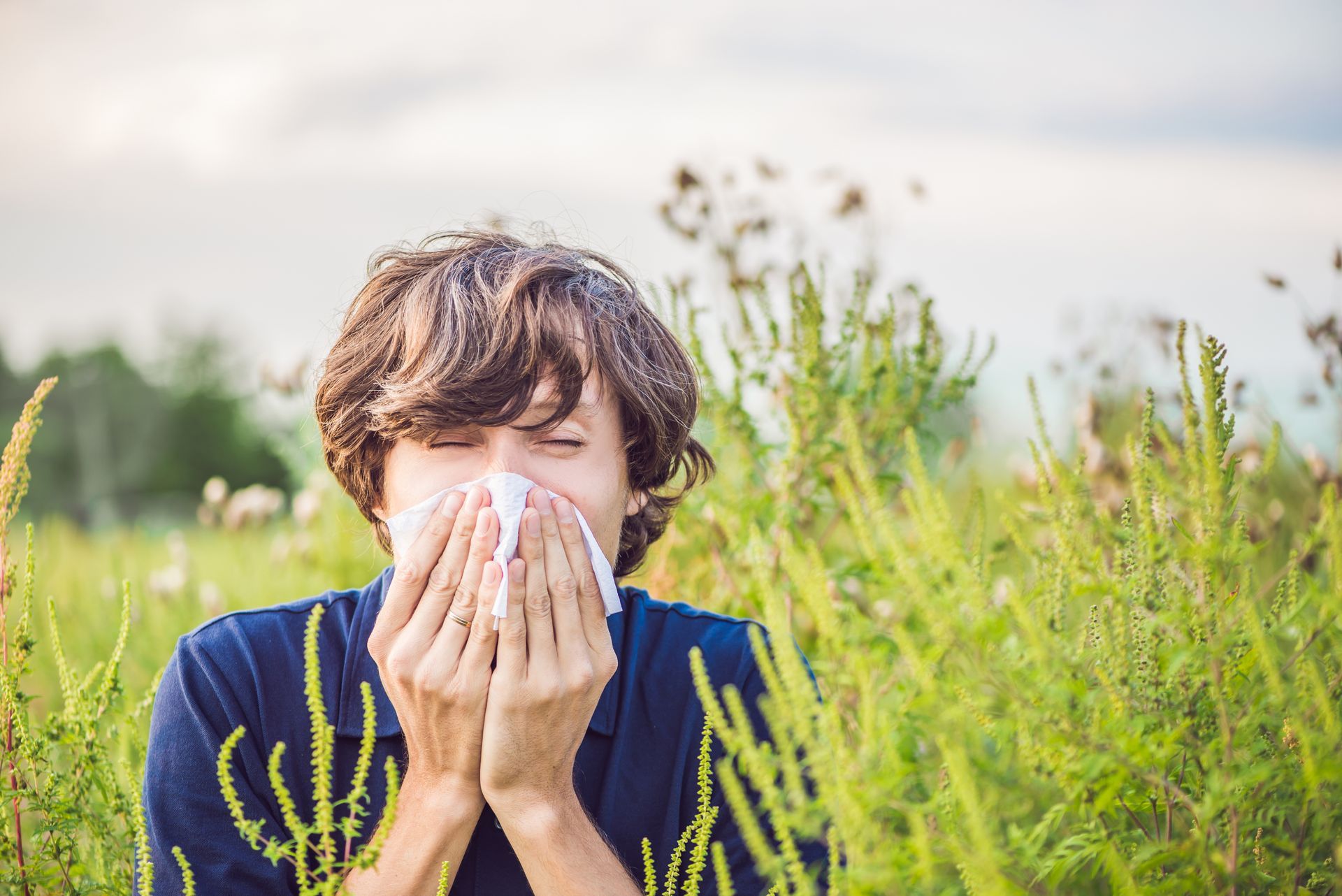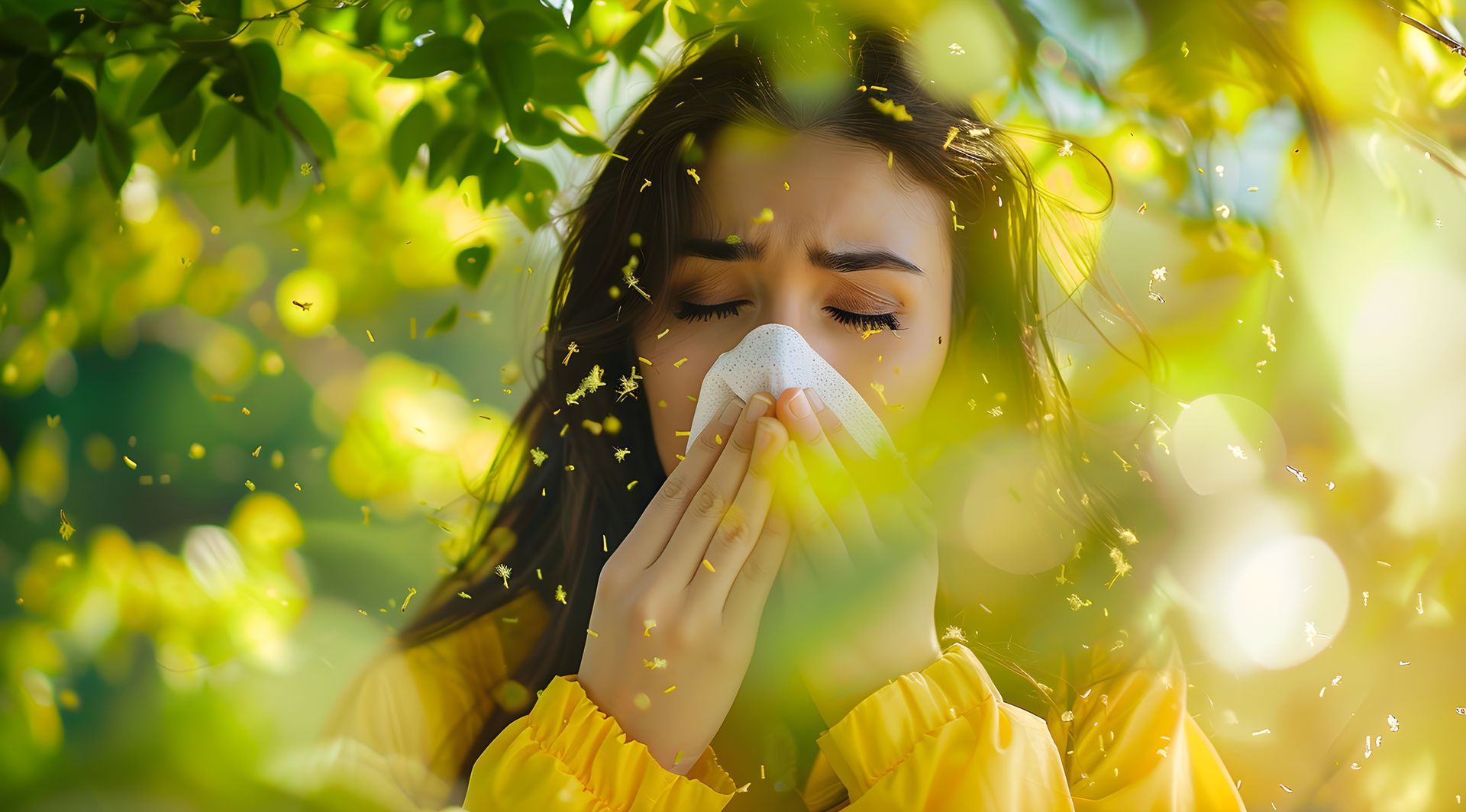The Link between Ragweed Allergies and Asthma: Managing Coexisting Conditions in San Antonio

In San Antonio, a city known for its vibrant culture and warm climate, residents often grapple with seasonal allergies, particularly during the ragweed season. Ragweed is a common allergen that releases abundant pollen into the air during late summer and early fall, triggering allergic reactions in many individuals.
For some, these allergies can be more than just a sneezy inconvenience; they may also coexist with asthma, a chronic respiratory condition that can lead to serious health complications. This blog explores the link between ragweed allergies and asthma and offers insights into managing these coexisting conditions effectively.
Understanding the Link: Ragweed Allergies and Asthma
In our region, various airborne allergens can disrupt people’s well-being. Surprisingly, the Asthma and Allergy Foundation of America designates San Antonio as the fourth most challenging city in the US for those dealing with fall allergies and the fifth worst for those with spring allergies.
As fall arrives, children return to school, football season starts, and relief from the summer’s heat sets in. With cooler temperatures, many individuals take advantage of outdoor activities. Regrettably, this is also the time when weed pollen becomes active. Among them, ragweed stands out as the primary culprit.
As the weather cools, ragweed releases pollen through the wind. This weed can grow taller than the average person and produces an abundance of potent pollen.
Living in San Antonio doesn’t mean you have to endure this indefinitely. If you consistently experience allergy symptoms like a runny nose, sneezing, itchy or watery eyes, and congestion around the same time every year for several weeks or months,you might be among the many Texans suffering from seasonal allergies.
Asthma is a respiratory condition characterized by inflammation and narrowing of the airways, leading to difficulty in breathing, coughing, and wheezing. While ragweed does not directly cause asthma, it can
exacerbate asthma symptoms. This connection is primarily due to the immune system’s overreaction to ragweed pollen in individuals with allergies.
When people inhale ragweed pollen, their immune system recognizes it as a threat and releases chemicals that induce allergy symptoms like sneezing, itching, and congestion. In asthmatic individuals, these same chemicals can also inflame and constrict the airways, leading to
ragweed asthma attacks.
Recognizing Ragweed Allergy Symptoms
Before diving into asthma management, it is essential to identify ragweed allergy symptoms accurately. These symptoms may vary from mild to severe and can include:
- Sneezing
- Runny or stuffy nose
- Itchy or watery eyes
- Itchy throat or ears
- Fatigue
- Skin rashes or hives (in some cases)
Individuals experiencing these symptoms during ragweed season should consider consulting an
allergist for proper diagnosis and to determine if asthma coexists with their allergies.
Managing Ragweed Allergies and Asthma
A. Avoidance Measures
The first step in managing ragweed allergies and asthma involves reducing exposure to ragweed pollen. Stay indoors on windy days when pollen counts are high, and keep windows closed during peak pollen periods. While engaging in outdoor activities, consider wearing a pollen mask and avoid exercising outdoors during elevated pollen levels.
B. Allergy Medication
Over-the-counter antihistamines, such as cetirizine and loratadine, can help alleviate ragweed allergy symptoms. These medications work by blocking antihistamines, which are responsible for allergic reactions. For more severe allergies, allergists may prescribe nasal corticosteroids to reduce inflammation and congestion.
C. Immunotherapy
Allergen immunotherapy, commonly known as allergy shots, can be an effective long-term treatment for ragweed allergies and asthma. This treatment involves gradually exposing the patient to small amounts of the allergen, helping the immune system build tolerance over time.
D. Asthma Controller Medications
For individuals with asthma symptoms easily triggered by ragweed, using prescribed controller medications is crucial for long-term asthma management. Inhaled corticosteroids, long-acting beta-agonists, and leukotriene modifiers are common asthma controller medications that help control inflammation and prevent asthma symptoms.
E. Quick-Relief Medications
Quick-relief medications, also known as rescue inhalers, provide rapid relief during asthma attacks. Short-acting beta-agonists like albuterol relax the airway muscles and quickly improve breathing—individuals with asthma must always carry their rescue inhaler, especially during ragweed season.
Frequently Asked Questions About Asthma and Ragweed
Does ragweed cause asthma?
While ragweed doesn’t directly cause asthma, it can exacerbate asthma symptoms in individuals already prone to it. Ragweed pollen can trigger an immune response that inflames the airways, potentially leading to asthma attacks in susceptible individuals.
How can I manage both ragweed allergies and asthma effectively?
Effective management involves a multi-pronged approach. Avoiding pollen exposure by staying indoors during peak pollen times and using pollen masks during outdoor activities is essential. Additionally, allergy medications like antihistamines, nasal corticosteroids, prescribed asthma controllers, and rescue medications can help manage symptoms.
Breath Easy in San Antonio: Managing Ragweed Allergies and Asthma with Proactive Care
The link between ragweed allergies and asthma can be challenging for many San Antonio residents. Understanding this connection and recognizing the symptoms is the first step toward effective management.
Individuals can better cope with these coexisting conditions by taking proactive measures to avoid pollen exposure, using appropriate allergy and asthma medications, and considering allergen immunotherapy. Remember, seeking guidance from a healthcare professional, such as an allergist, is vital for personalized asthma and allergy management plans.
By adopting these strategies, San Antonio residents can minimize the impact of ragweed season and enjoy the city’s rich culture and warm climate without the burden of ragweed allergies and asthma symptoms.
Are ragweed allergies putting a damper on your well-being? Count on
Premier Allergy TX to provide effective solutions. Our expert team, led by
Dr. Freiler, specializes in ragweed allergy treatment. We offer personalized approaches that allow you to reclaim your comfort and enjoy the outdoors without compromise.
Don’t let ragweed allergies disrupt your life any longer. If you’re looking for the best allergy medicine for ragweed, do not hesitate to contact us today at (210) 791-7856 or click the “Schedule an Appointment” button to consult our specialists. Together, we’ll work towards creating an environment where ragweed allergies are no longer a hindrance. For more information, visit Premier Allergy TX and take the first step towards a symptom-free life.
Contact us
Clinic & Allergy Shot Hours :
- Mon: 9 AM – 6 PM
- Tues: 9 AM – 5 PM
- Wed: 9 AM – 6 PM
- Thurs: 9 AM – 1 PM
- Fri: 8 AM – 12:30 PM
- 3rd Sat: 9 AM – 1 PM












